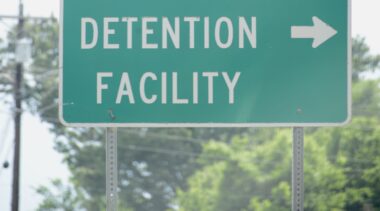Vittorio Nastasi is the director of criminal justice policy at Reason Foundation, where he provides research and technical assistance to lawmakers and stakeholders across the country.
His work focuses on removing barriers to employment, housing, and education for individuals with criminal records; curbing excessive criminal fines and fees; and reducing system overreach through policy research and legislative engagement. His research and commentary have appeared in The Wall Street Journal, Orange County Register, Atlanta Journal–Constitution, Palm Beach Post, and Tallahassee Democrat, among others.
Before joining Reason, he worked with the James Madison Institute and the DeVoe L. Moore Center, researching land-use regulation, occupational licensing, and criminal justice policy. Nastasi holds bachelor’s degrees in economics and political science and is currently a doctoral candidate at Florida State University’s Askew School of Public Administration and Policy. He is based in Tallahassee, Florida.
-
Could clearance rates be key to addressing criminal justice failures?
Clearance rates are the closest metric we have to evaluating how well the criminal justice system does at catching people who commit crimes.
-
Missouri bills would protect free expression and artistic freedom
Senate Bill 661 and House Bill 1389 would create uniform standards for the admission of song lyrics and other forms of artistic expression into evidence.
-
Michigan requires greater transparency to support public trust in law enforcement
Michigan House Bill 5749 would clarify that law enforcement disciplinary records are not exempted from public records requests.
-
The effects of cash bail on crime and court appearances
Research suggests that curtailing the use of monetary release conditions among low-risk defendants would not result in dramatic drops in court attendance or increased risk of reoffending.
-
Grading every state’s telehealth laws
While many state telehealth laws changed during the COVID-19 pandemic, some of those reforms have expired and many best practices that would improve health care and help patients still need to be implemented.
-
Examining recent crime trends and flaws in national statistics
It is important to understand crime data in context and avoid reactionary policy decisions.
-
Monetary sanctions and court fees are counterproductive to the goals of juvenile justice
Each year, an estimated 1 million youth enter juvenile courts.
-
Text message reminders can improve community supervision outcomes and reduce inefficiency
Nearly 3.7 million adults are on community supervision programs like probation and parole–that’s nearly twice the number of people incarcerated in jail or prison.
-
Providing returning citizens with IDs and other essential documents can facilitate the reentry process
Over 80% of prisoners will eventually be released and roughly 500,000 people are released from prison each year.
-
Strategies for improving community supervision programs
Nearly 3.7 million adults are on community supervision programs like probation and parole across the United States.
-
Occupational licensing reform can reduce barriers to employment faced by former offenders
Lawmakers should consider occupational licensing reform to reduce government-imposed barriers to employment for former offenders.
-
Alaska House Bill 28 would help provide justice for those harmed by marijuana prohibition
Alaska lags behind other states when it comes to mitigating the harms done by marijuana prohibition.
-
State policy agenda for telehealth innovation
This report examines all 50 states in four key areas where there's an opportunity to maximize the potential of telehealth services.
-
Fines and fees: Consequences and opportunities for reform
The use of fines and fees to directly fund courts, law enforcement agencies, or other government activities can result in undesirable conflicts of interest.
-
How text message reminders can help reduce technical parole and probation violations
This report's findings suggest that sending text message reminders for scheduled appointments could reduce canceled and missed parole and probation appointments by as much as 21% and 29%, respectively.
-
Abolishing Oklahoma’s death penalty would be good for justice and for taxpayers
Since 1981, 10 people in Oklahoma have been exonerated while on death row awaiting execution.
-
Abolishing Ohio’s death penalty would be good for justice and for taxpayers
Since 1979, 11 people in Ohio have been exonerated while on death row awaiting execution.


















